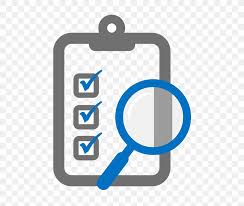Mastering SEO Meta Tags: 15 Strategies for Top Search Rankings
In today's competitive digital landscape, a robust online presence is paramount for business success. Search engine optimization (SEO) plays a pivotal role in achieving this visibility, and meta tag optimization is a cornerstone of effective SEO. Meta tags offer crucial information to search engines, enabling them to understand and accurately rank your web pages. This comprehensive guide provides fifteen actionable strategies to elevate your website's SEO performance through meticulous meta tag optimization.
1. Title Tag Optimization: The Foundation of SEO
The title tag is your most valuable SEO meta tag. It should concisely and accurately reflect your page's content, incorporating relevant keywords naturally. For a New York City bakery, for instance, a strong title tag might be "Artisanal Bread & Pastries | NYC Bakery - [Your Brand Name]." Keep it under 60 characters to avoid truncation in search results.
2. Craft Compelling Meta Descriptions: Driving Click-Through Rates
While meta descriptions don't directly impact search rankings, they significantly influence click-through rates (CTR). Write concise, engaging descriptions that entice users to click. A compelling description for our bakery example could be: "Discover the freshest, most delicious pastries and artisanal breads in NYC. Order online or visit our cozy bakery today!"
3. Strategic URL Structure: Enhancing Search Engine Crawlability
Descriptive URLs improve both search engine crawlability and user experience. Instead of generic URLs like "/post1234," use keyword-rich URLs such as "/best-gluten-free-recipes" for a blog post on gluten-free recipes. Clear URLs improve understanding and relevance.
4. Header Tags: Structuring Content for SEO and Readability
Header tags (H1, H2, H3, etc.) provide both structural and semantic context to your content. Use H1 tags for your primary keywords ("Best Gluten-Free Bread Recipes"), and subsequent header tags (H2, H3) for subheadings ("Simple and Delicious Variations," "Expert Baking Tips"). This hierarchical structure aids both search engines and readers.
5. Leveraging Schema Markup: Enhancing Search Engine Understanding
Schema markup is structured data that helps search engines understand your content more comprehensively. Use it to highlight key information like your business address, customer reviews, or product details. This improved context can result in richer snippets in search results, leading to higher click-through rates.
6. Descriptive Image Alt Tags: Improving Accessibility and SEO
Alt tags provide descriptive text for images, improving accessibility for visually impaired users and providing crucial context for search engines. Instead of "IMG1234," use descriptive alt text like "Freshly Baked Croissant with Almond Filling - [Your Bakery Name]".
7. Canonical Tags: Preventing Duplicate Content Issues
If you have similar content across multiple URLs (e.g., different versions for desktop and mobile), use canonical tags to designate the preferred version for search engines. This prevents duplicate content penalties and improves your SEO.
8. Social Media Meta Tags: Optimizing for Social Sharing
Social media meta tags control how your content is displayed when shared on platforms like Facebook and Twitter. Craft engaging titles, descriptions, and images tailored for social media to maximize engagement and sharing.
9. Mobile Optimization: A Crucial SEO Factor
With the majority of internet usage occurring on mobile devices, ensuring your website's mobile-friendliness is vital. Employ responsive design, optimize loading speed, and provide a seamless user experience across all devices. Google prioritizes mobile-first indexing.
10. Continuous Monitoring and Adjustment: The Dynamic Nature of SEO
SEO is an iterative process. Regularly monitor your meta tag performance using analytics tools like Google Search Console and Google Analytics. Analyze user behavior and adapt your meta tags based on search trends and user interaction data.
11. Comprehensive Keyword Research: Identifying Relevant Search Terms
Utilize keyword research tools such as Google Keyword Planner, Ahrefs, or SEMrush to discover relevant keywords within your industry. Incorporate these keywords naturally into your meta tags, focusing on user intent and search volume.
12. Avoiding Keyword Stuffing: Prioritizing Natural Language
While keyword inclusion is crucial, avoid excessive and unnatural keyword repetition (keyword stuffing). Search engines penalize this practice, prioritizing content that reads naturally and meets user needs.
13. Unique Meta Tags for Every Page: Avoiding Duplicate Content
Each page on your website should have unique meta tags. Duplicating title tags, meta descriptions, or other meta tags confuses search engines and negatively impacts your rankings.
14. Competitive Analysis: Identifying Opportunities for Improvement
Analyze your competitors' meta tags to identify areas for improvement. Don't copy directly, but learn from their strategies to understand effective keyword usage and meta tag optimization.
15. Staying Current with SEO Best Practices: Adapting to Algorithm Updates
The SEO landscape is constantly evolving. Stay informed about the latest algorithm updates, best practices, and emerging trends to maintain a competitive edge. Continuous learning is key to successful SEO.
By diligently implementing these fifteen strategies, you can significantly enhance your website's SEO meta tags, increasing search engine visibility, driving organic traffic, and ultimately achieving your online business objectives. Remember, consistent effort and ongoing optimization are essential for long-term SEO success.






No comments yet. Be the first to share your thoughts!